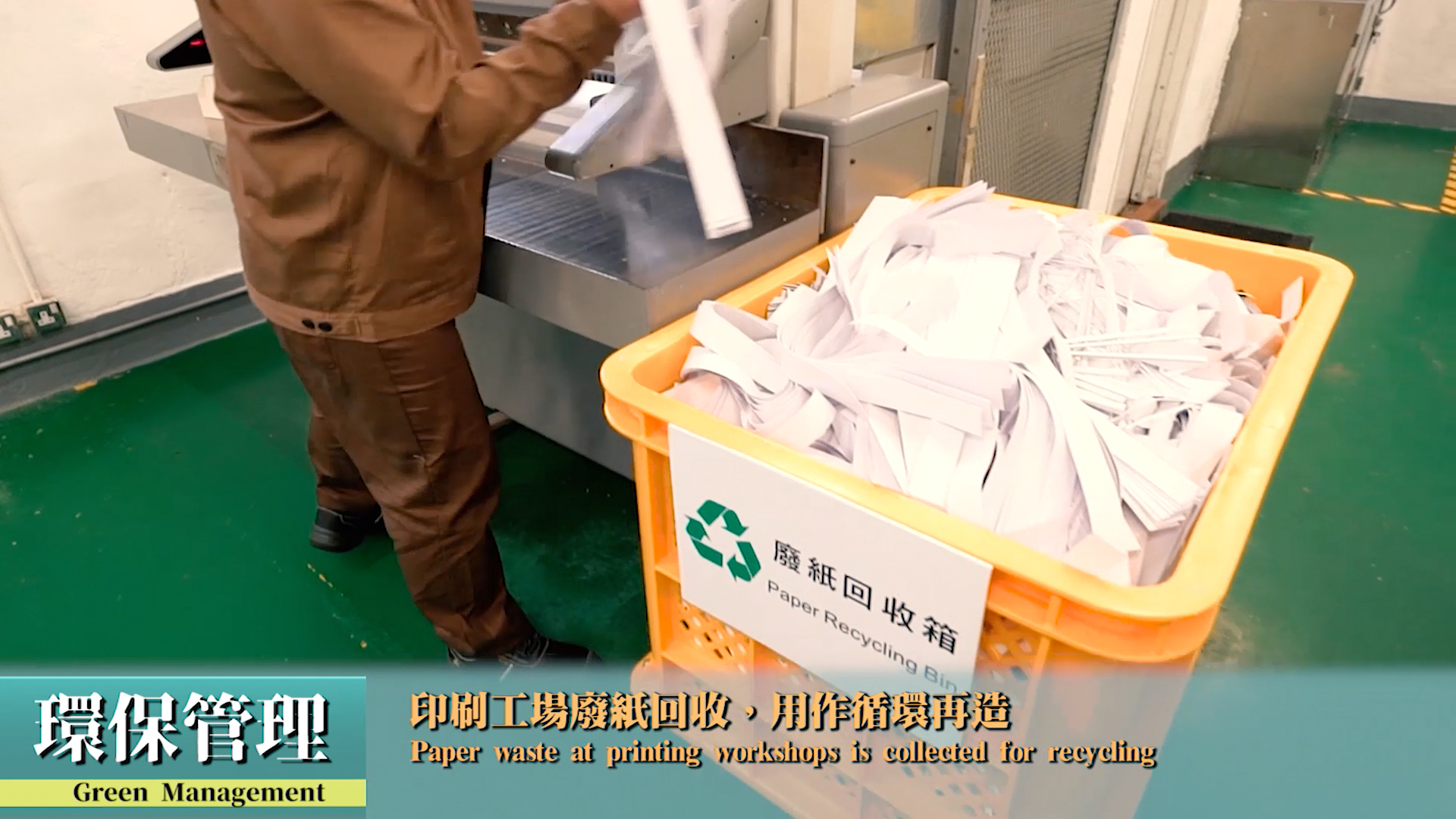Green Management
The Department always places environmental protection in high priorities in every aspect of its operation. We strictly comply with relevant laws, regulations and standards, and strive to maintain best results and achieve further improvements. Correctional facilities are designed and operated in an environmentally friendly manner, while conservation of resources remains tightly enforced throughout. Going hand in hand, waste reduction, recycling, green procurement and education of staff and persons in custody are all pivotal components in departmental efforts towards good stewardship of the environment.
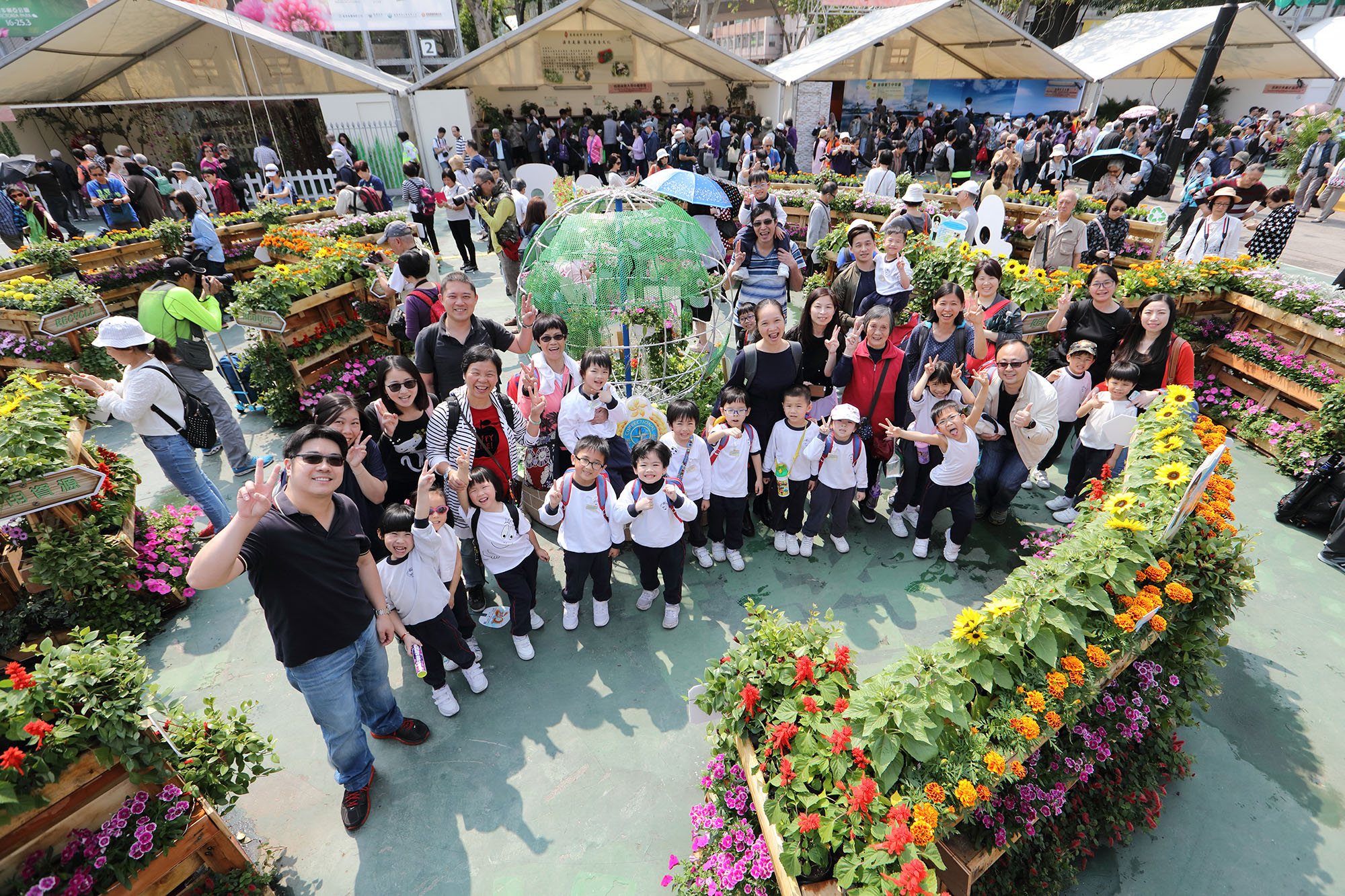
We took part in the annual Hong Kong Flower Show and won notable accolades for our efforts.
Environmental Management and Accountability
To facilitate the coordination of environmental work in the Department, the Green Manager's Committee was formed in 1999. It sets environmental objectives and adopts measures in line with the government's environmental policies. The Environmental Auditing Team conducts comprehensive audits at institutions, reports the findings and makes recommendations to the Committee for sharing among institutions for reference. Hei Ling Chau Correctional Institution and Lai Sun Correctional Institution were chosen for conducting audits in 2018.
Environmental Initiatives
Our environmental initiatives include energy conservation and use of renewable energy, green housekeeping and gradual replacement of conventional electrical appliances and lighting with energy saving models. In 2018, two replacement of aged floodlight system by LED type projects and five replacement of split-type air conditioners by variable frequency drive types projects were completed.
The Department makes its best endeavours in resource utilisation and works vigilantly to limit wastage, conserve water and control office-related consumption. All sewing machines in garment making workshops will be replaced by energy-saving servo motors in about two years. Carton boxes were returned from client departments for re-use. Moreover, three units of bio-diesel steam boilers of Pik Uk Laundry will be replaced by gas boilers in 2021 for reducing carbon emission by 14%. The Correctional Services Department conducted carbon audits for 21 correctional facilities concerned from April 1 to December 31 in 2017. The average Greenhouse Gas emission from 21 correctional facilities was 0.089 tonnes of carbon dioxide per square metre (Note 1).
In respect of food waste management, to further promote the awareness and acceptance of food waste reduction best practices among institutional staff and persons in custody (PICs), Food Wise Ambassadors were appointed in correctional institutions since 2016. Moreover, PICs are encouraged to reduce the portion of their staple food including rice, chapatti and potatoes by joining the “Waste No Food” Scheme on a voluntary basis and the scheme has been run by Lo Wu Correctional Institution (LWCI), Nei Kwu Correctional Institution, Tai Lam Centre for Women (TLCW) and the Elderly Unit of Tai Lam Correctional Institution. In 2018, an estimated average of about 16 000 bowls of rice were saved each month. According to the latest survey carried out in 2018, the food-waste quantities of the 28 correctional institutions were at an average of 0.09 kg per-PIC-per-day, representing a reduction from 0.11 kg in August 2015. We also introduced food waste decomposing machines to LWCI, Stanley Prison and TLCW for recycling food waste into useful fertiliser for greening purposes.
Sewage treatment and filtration systems are regularly inspected and upgraded to prevent the discharge of polluted effluent and eliminate contamination sources. Noise control is another important task. Noise levels at all locations are monitored and, where necessary and notably at workshops, proper ear protectors are provided. Regular indoor air quality assessments are also conducted to safeguard the health and well-being of all.
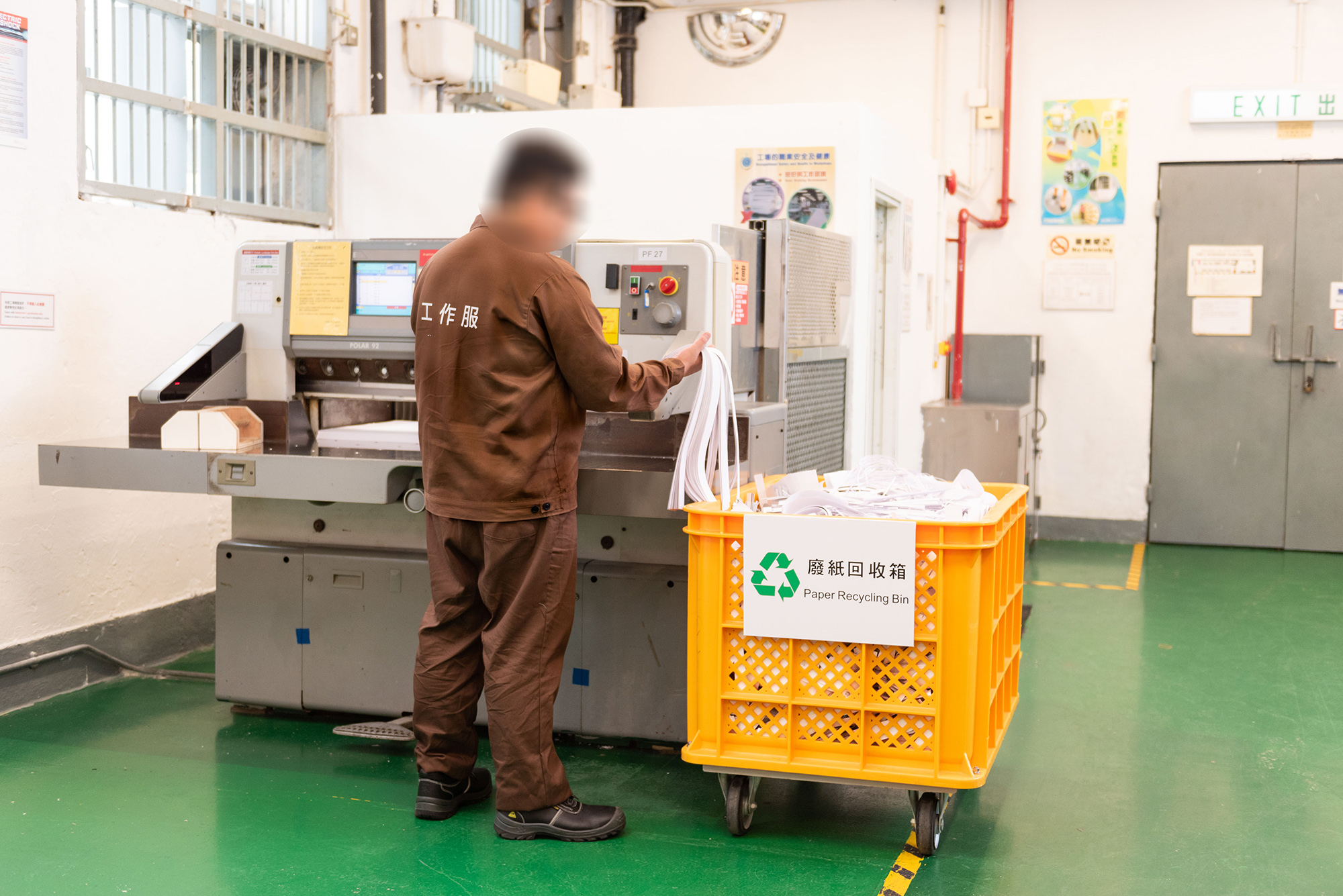
Paper waste at printing workshops is collected for recycling.
Proactive measures were also taken to make the Autumn Fair a green event. These included setting up recycling stations to collect recycle waste and water refill stations for staff helpers to encourage the reduced use of bottled water; appointing staff helpers as green ambassadors to promote waste reduction and recycling; putting products made of recyclable materials on ground sale at various institutional booths; setting up Green Corner to promote waste reduction, reuse and recycling, etc.
Note 1 : The relevant water consumption figures for 2017 were available in June 2018, and thus the respective carbon audit results are published in the Annual Review 2018.
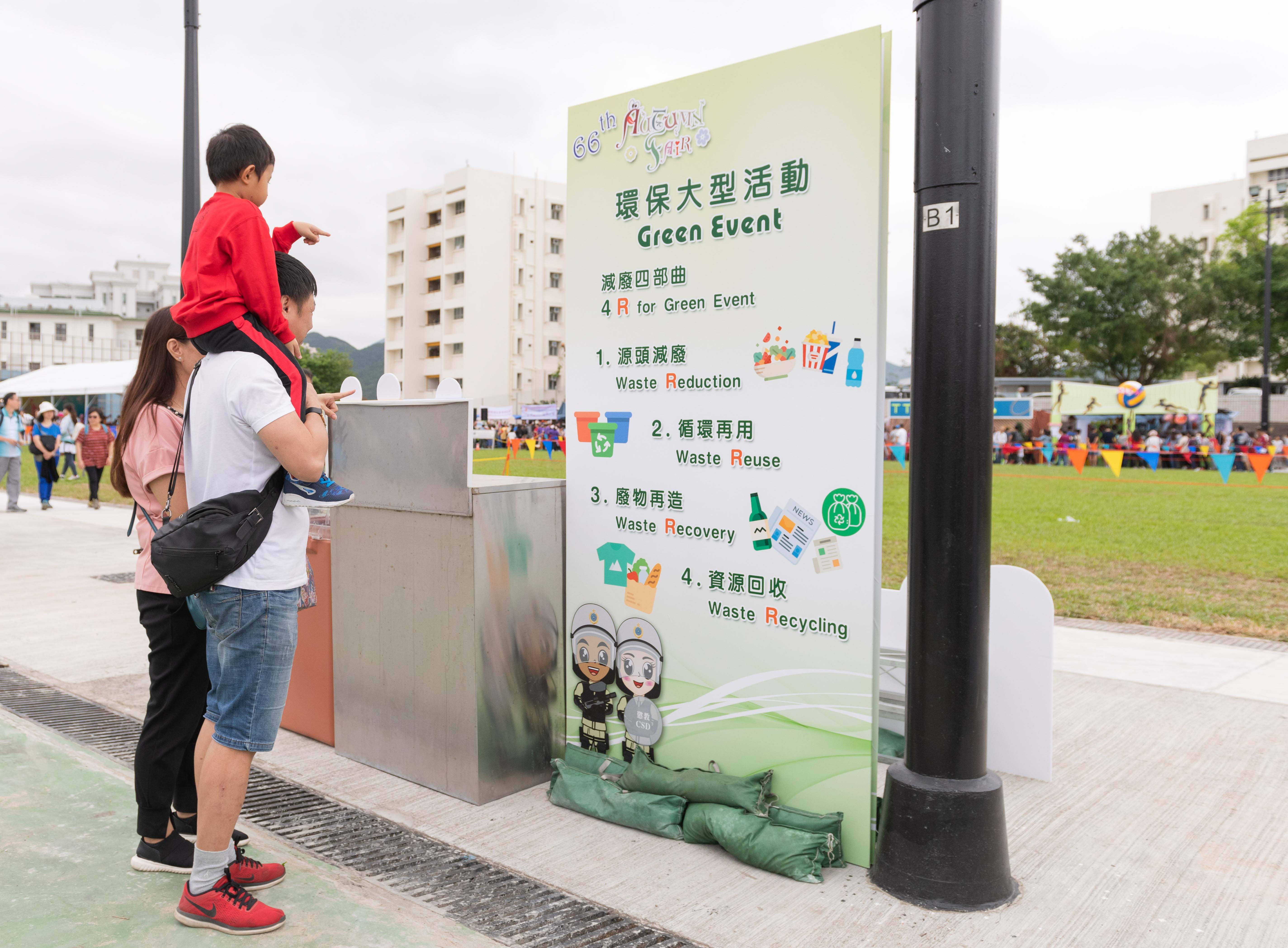
The public are reading the display on environmental protection and waste reduction.
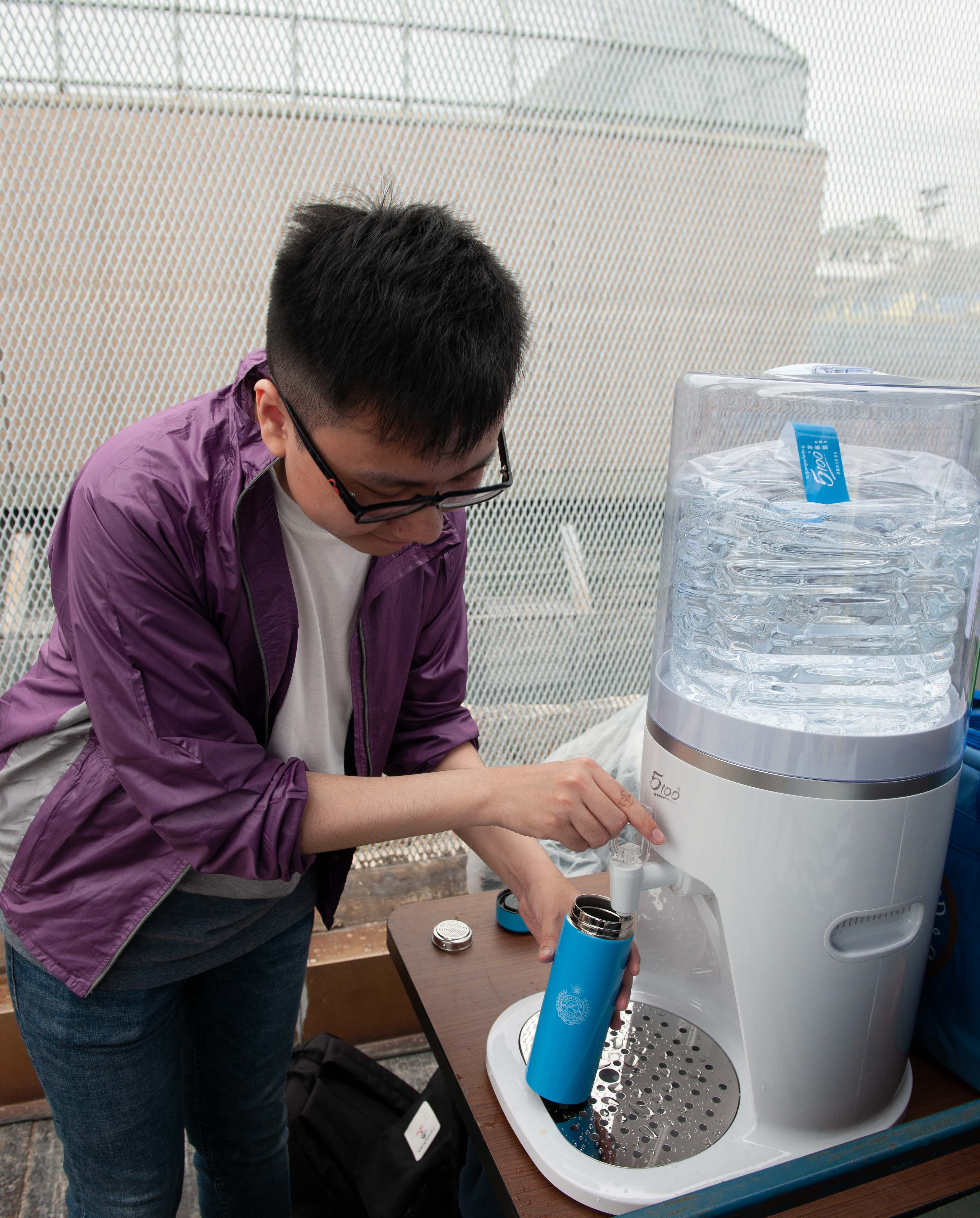
Staff refill their own bottles at water points.
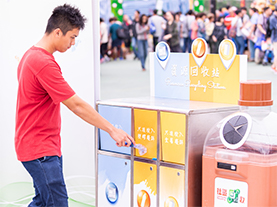
Plastic bottles are put into recycle bin.
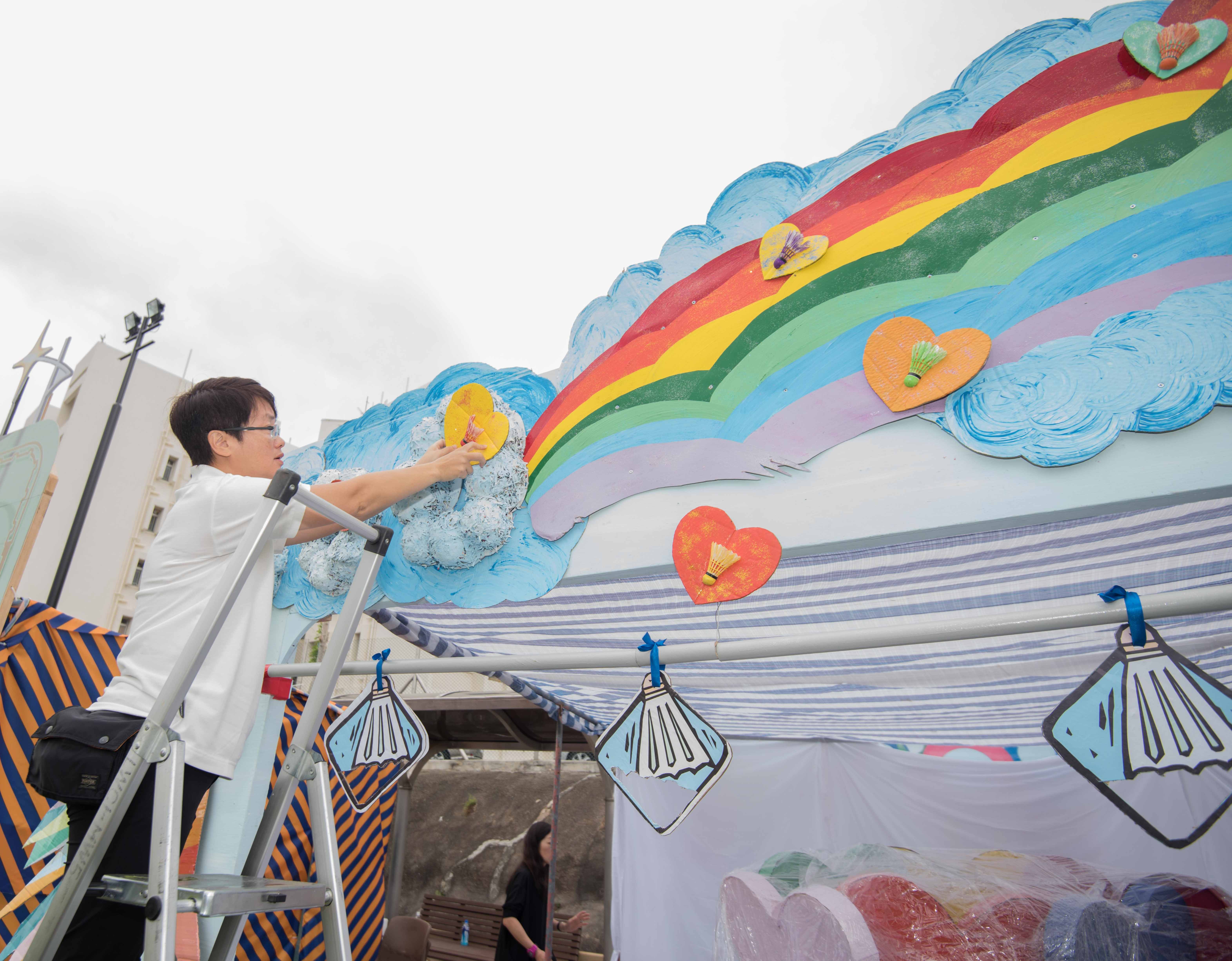
Booths are built with environmental friendly materials.
Green Cooperation
Environmental campaigns are made possible through close ties with other agencies and organisations. In cooperation with the Water Supplies Department, we had carried out works to monitor water flow in 10 institutions and best practice guides were promulgated for follow up by institutions to boost water efficiency in institutions. In this connection, we worked with the Architectural Services Department to repair water pipes and replace screw-down type water taps by self-closing taps in relevant institutions where existing resources permit. On energy conservation, the Chief Executive has, in his 2015 Policy Address, announced a new target of achieving a 5% saving in electricity consumption for government buildings under comparable operating conditions between 2015-16 and 2019-20. The Department is working proactively with the Electrical and Mechanical Services Department (EMSD) to meet the target. In 2015-16 and 2016-17, the EMSD arranged to conduct energy audits at 21 correctional institutions with higher energy consumption and compiled energy audit reports. Energy management opportunities have been identified by using more energy efficient lighting facilities, air-conditioning systems and machineries, etc. As compared with 2013-14 under comparable operating conditions, the electricity consumption under the Department's meter account was reduced by 9.6% in 2017-18.
Conservation Campaigns
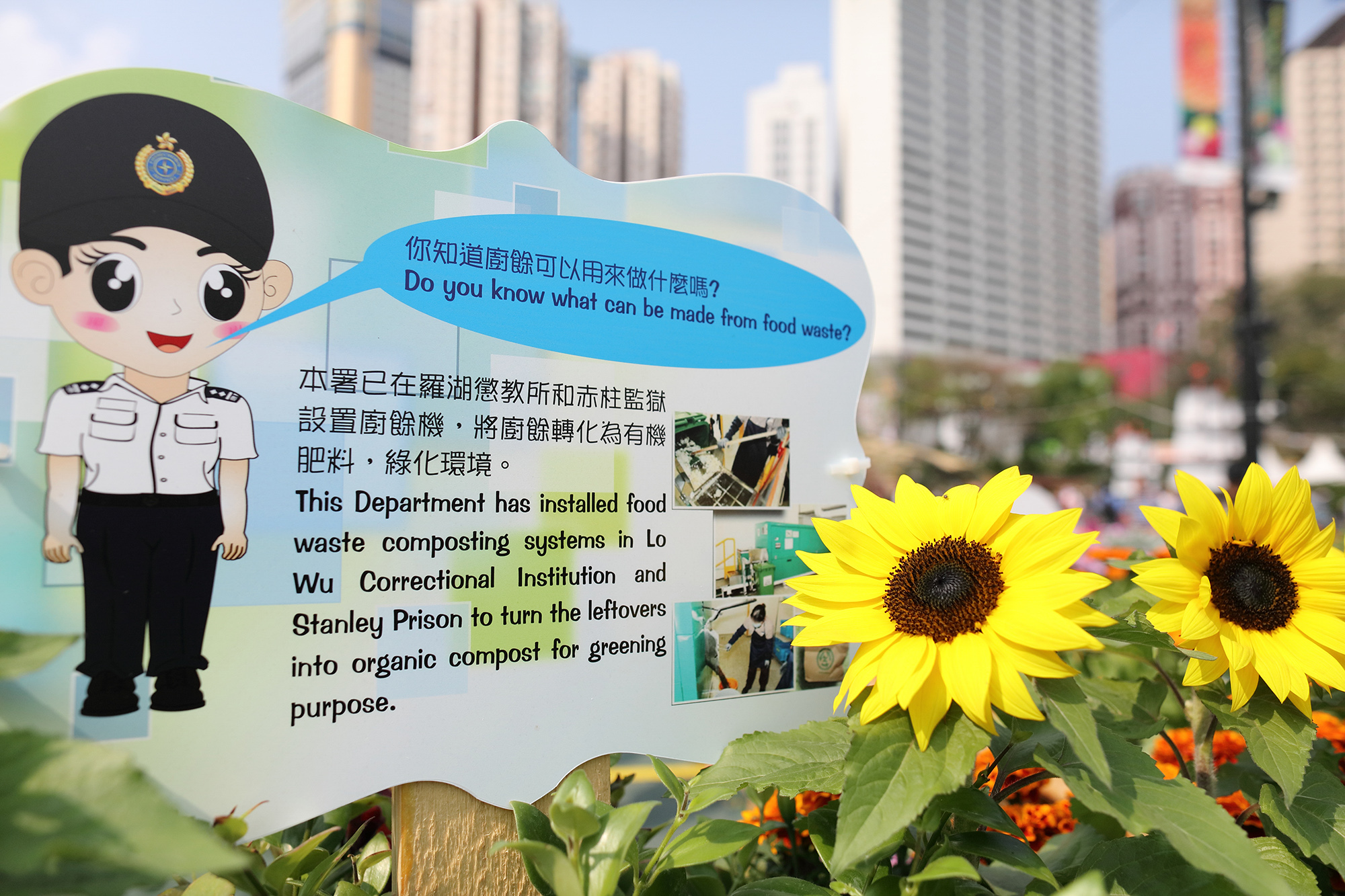
Disposed wooden pallet and tires are used in the booth at the annual Hong Kong Flower Show.
We engage suppliers with high environmental standards, and strive to educate correctional officers and persons in custody with conservation training and ecology-related classes. To promote the awareness of correctional officers and members of the public on environmental conservation, disposed wooden pallet and tires were used in our booth at the annual Hong Kong Flower Show. Notable accolades were received for our efforts.

